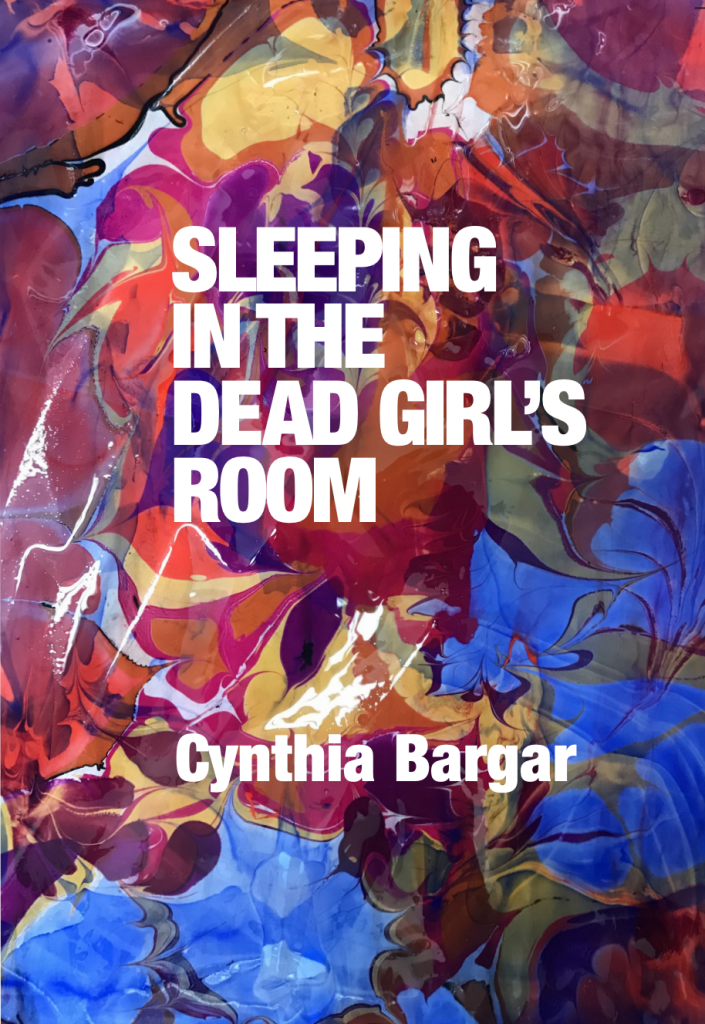Sleeping in the Dead Girl’s Room (Lily Poetry Review Books, 2022) — a ghost story, a memoir in poems — grapples with an 18-year-old’s presumed suicide months before the birth of her niece. They share a name: “When they call my name they are calling hers.” Engaging with memories, photographs, documents, and a haunting presence, the author weaves together the unspoken story of her aunt’s death and her own mental health travails and hospitalization.
PRAISE FOR SLEEPING IN THE DEAD GIRL’S ROOM
Sleeping in the Dead Girl’s Room
• MA Book Awards •
2023 Honors
Cynthia Bargar’s Sleeping in the Dead Girl’s Room explores the interior of the self over the course of a lifetime, tracing the long travail of the self when faced with an imposed multiplicity, a fracturing of identity. The tragic failures of culture, institutions, and medicine itself are laid bare in these pages. Bargar has created a work that challenges the boundaries of genre while indicting a world that refuses to examine its own culpability in silencing the brave and the vulnerable—as the speaker is warned at one point by an attendant in a mental health facility, “Laugh too loud,/ they take the laugh away.” This is a courageous book—made to be read in one sitting, made to linger in the imagination.
— Brian Turner, author of My Life as a Foreign Country, and Here, Bullet
We now know so much about how trauma and mental illness can be passed down through families, but in Sleeping In The Dead Girls’ Room, Cynthia Bargar does much more than recount her family saga. Bargar’s poems weave poetic craft and narrative urgency into a memoir that reveals both the story of her name and the ghost who inhabited her psyche for many years. In masterfully wielding poetic form to reconcile and exorcise the Dead Girl’s story from her own, Bargar shows us how healing happens at the soul level of language.
— KPrevallet, author of I, Afterlife: Essay in Mourning Time and Trance Poetics
At once a ghost story and a journey of discovery, an act of capacious empathy and of desperate disidentification, Cynthia Bargar’s Sleeping in the Dead Girl’s Room is as deeply moving as it is quietly devastating. Through a series of poetic dialogues we are invited to join and to share, the poems re-assemble the pieces of a self who dares to move toward hope.
— Marianne Hirsch, author of Family Frames and The Generation of Postmemory
